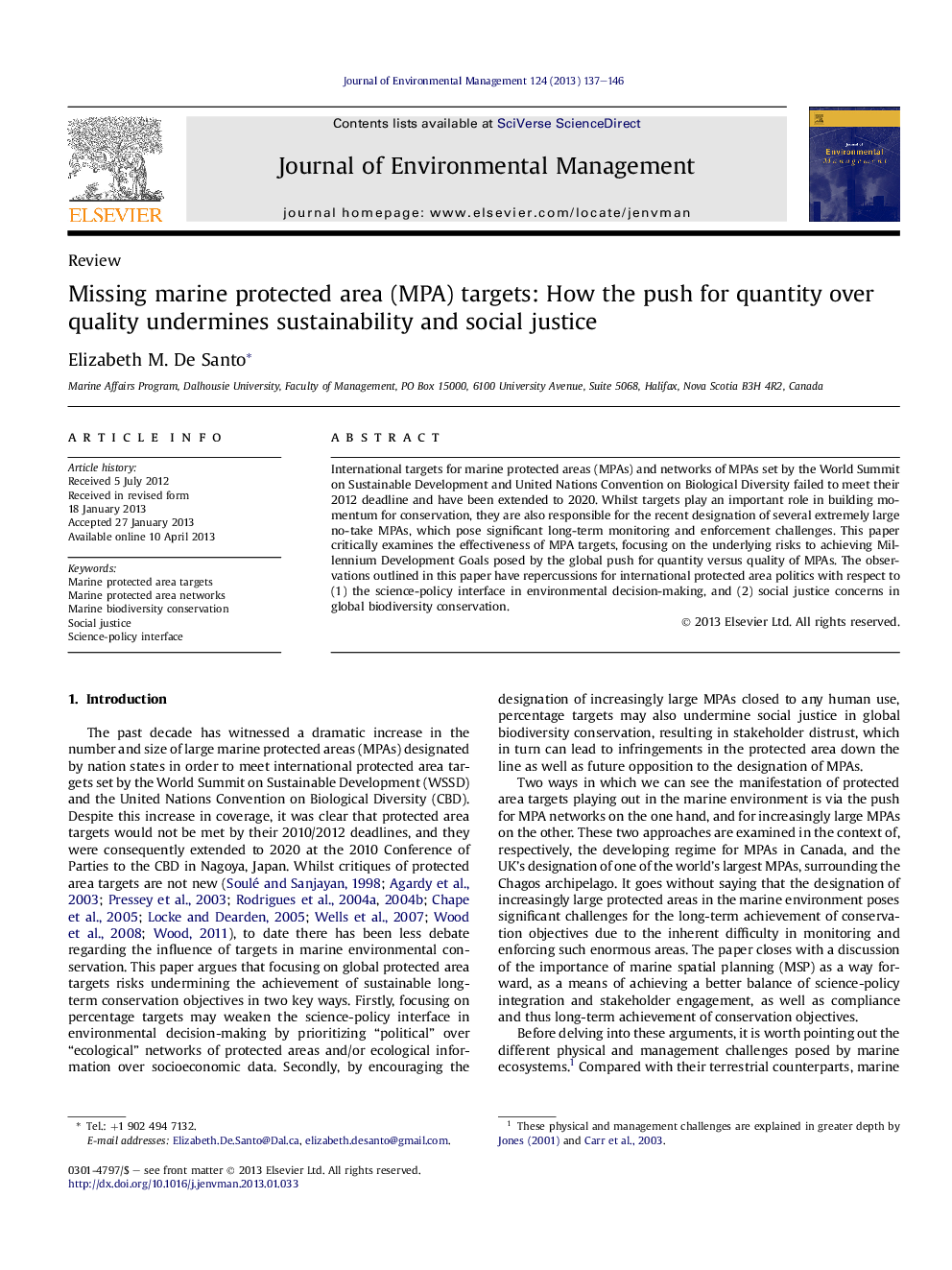| Article ID | Journal | Published Year | Pages | File Type |
|---|---|---|---|---|
| 1056271 | Journal of Environmental Management | 2013 | 10 Pages |
International targets for marine protected areas (MPAs) and networks of MPAs set by the World Summit on Sustainable Development and United Nations Convention on Biological Diversity failed to meet their 2012 deadline and have been extended to 2020. Whilst targets play an important role in building momentum for conservation, they are also responsible for the recent designation of several extremely large no-take MPAs, which pose significant long-term monitoring and enforcement challenges. This paper critically examines the effectiveness of MPA targets, focusing on the underlying risks to achieving Millennium Development Goals posed by the global push for quantity versus quality of MPAs. The observations outlined in this paper have repercussions for international protected area politics with respect to (1) the science-policy interface in environmental decision-making, and (2) social justice concerns in global biodiversity conservation.
► Global MPA targets are driving a “bigger is better” approach to marine conservation. ► Extremely large no-take MPAs pose challenges for enforcement and compliance. ► Target-driven mandates risk favoring political over ecological MPA networks. ► Social justice concerns must be better integrated into MPA planning. ► Marine Spatial Planning is key to achieving sustainable, long-term management.
